Tahrir Square: Egypt Election Looms After Protest Violence [PHOTOS]
Clashes erupted among protesters and members of the military and police forces in Cairo's Tahrir Square in Egypt on Sunday, in scenes strongly reminiscent of the 18-day uprising of the Arab Spring that ousted President Hosni Mubarak.
The demonstrators had gathered in Tahrir Square to protest the Supreme Council of the Armed Forces (SCAF), an intermediary military government that appeared to be consolidating and broadening its power just days before Egypt's first post-revolt parliamentary elections.
Protesters are demanding that the SCAF announce an immediate date for the handover of power to a civilian government and the resignation of Field Marshal Hussein Tantawi, head of the ruling council and Mubarak's longtime defense minister. Many within the demonstration also called for the resignation of Egypt's intermediary cabinet, including Prime Minister Essam Sharaf, and decried the army's use of military trials against civilians.
Ratcheting Tensions
Tensions had been rising over the past two days before the Nov. 20 (Nov. 19 for those in the U.S.) clash between protesters and the police. In the early evening, police and some military troops chased thousands of protesters out of the square, setting fire to the demonstrators' tents and hitting any demonstrators that stayed behind with their batons. Security forces also fired tear gas into groups of protesters.
Soon after nightfall, however, many hundreds were making their way back to Tahrir Square. Some 5,000 protesters returned to the area where as many as 50,000 strong had assembled earlier, and there they clashed with police once again. Reporters on the scene described a pall of black smoke from the police officers' fires covering the square as gunshots rang out.
Though officials say police used only rubber bullets and tear gas to subdue troublemakers, at least two were killed in the protests by gunshot wounds, and many hundreds were injured. For full details of the Nov. 20 clash, and protests throughout Egypt, read our initial coverage here.
Problem of SCAF Control
The protests, and violent clashes with police and the military, come at a turning point in Egypt's history: On Nov. 28, 2011, the first parliamentary elections since the deposing of authoritarian leader Hosni Muburak will be held.
The violence at Tahrir Square crystallizes widespread anger over the slow pace of reforms instituted by the SCAF and apparent attempts by the military to cling to power, but also Egypt's tenuous position as a country with an intermediary government.
The violence showed us yesterday that Mubarak is still in power, protester Ahmed Hani told the AP. Hani was wounded by a rubber bullet during the protests.
The army initially won popular backing during Mubarak's overthrow, by maintaining order during the 18-day uprising begun at Tahrir Square and pledging to hand over power to an elected government.
The SCAF has yet, however, to name a date for a complete turnover, even with upcoming staggered elections that will run until March. According to one timetable floated by the army, the handover may not happen until presidential elections are held in 2013.
The presidential election must start [right after] the parliamentary election ... When you have an elected parliament you can insist, said Essam el-Erian, deputy head of the Muslim Brotherhood's newly established Freedom and Justice Party. The Muslim Brotherhood is one of Egypt's largest and most organized political groups, and it began the rally that swelled into the thousands over the weekend.
Following the recent brutal clashes between authorities and civilians, protesters have begun an open-ended sit-in back at Tahrir Square until Prime Minister Sharaf and the entire military-controlled cabinet resigns.
Sharaf has already released a statement refusing to step down but is begging Egyptian demonstrators for patience. We are in a critical period, a government official told Ahram Online. The government cannot leave during the tense time the country is enduring ... which will be decisive in determining the future of Egypt.
The government's statements were not helped, however, by Field Marshal El-Fangary, who expressed bewilderment at the strike and defiance in the face of the pressed-for reforms. Fangary remains, according to The New York Times, as unrepentantly irritated by the protesters and their demands as he was over the summer, and his words against the demonstrators smacked far more of the toppled Mubarak regime than of an official about to hand over power.
The aim of what is going on is to shake the backbone of the state, which is the armed forces, Fangary said, before giving this ominous warning: If security is not applied, we will implement the rule of law. Anyone who does wrong will pay for it.
Elections Moving Forward
The army, which continues to insist it has no intention of retaining political control, has said the Nov. 28 elections will go forward despite the violence at Tahrir Square. As Egyptian citizens prepare to cast their vote however, the question of who will be elected, and through what means, is still very much up in the air.
A surge in violence during the staggered elections, a commonplace occurrence during Mubarak's own infamously rigged polls, could undermine the legitimacy of whatever assembly is elected, especially if the result is questioned. Police attempting to keep order could very well end up forming troops similar to the Mubarak-era thugs that used brute intimidation to help Mubarek and his cohorts get elected in Egypt's rural areas.
And while the upcoming parliament will have a powerful legislative role, executive power still remains with the army generals who served Mubarak.
Those elected in the staggered polls will pick a 100-strong constituent assembly to draft Egypt's new constitution, but even this has already been compromised by military involvement, with the army-backed cabinet proposing addendums that included shielding the military from civilian supervision and giving the army a broad national security remit during emergency circumstances.
Many Egyptians, meanwhile, are still struggling to understand the intricacies of the new electoral system, as well as who is running for what party. An enthusiastic but worried voter named Ahmed was recorded on a nighttime radio talk show airing these deep-seated anxieties about Egypt's future: We have a very important vote coming, he said, and we have no clue what to do.
One Party Rule A Thing of Past
Despite frustrations, fears and fallout, however, the demonstrations at Tahrir Square have shown Egypt one thing for certain: one-man and one-party rule is a thing of the past.
A dizzying array of political parties, grassroots movements and upcoming voices have formed since the Arab Spring, and demonstrators at the Nov. 20 riots encompassed ultra-Islamists, fledgling liberal parties and long-standing groups like the Wafd Party and the Muslim Brotherhood, which was banned under Mubarak but survived and thrived through an emphasis on social work and support for Egypt's impoverished.
Analysts predict that Islamists will win some 40% of the parliament seats, with a big portion going to the Muslim Brotherhood, and that the liberal secular groups that were the main impetus for the February uprising will garner a significant portion of the vote.
Some analysts, like Hisham Kassem, told Reuters that the military will not be brought under civilian rule for up to ten years, and others are certain this first series of elections will not change much in Egypt.
Hassan Nafaa, however, a Cairo University professor of political science, feels the elections are still crucial even if no sweeping changes are implemented, if only to start the process of shaking marginal voices out of Egypt's politics and beginning to take clearer steps toward a cohesive-yet-party-diverse political system.
It's a little anarchic right now, he said, but after the vote there will be a new process, with true political forces. You will know exactly who to deal with.
Below, see pictures from the Nov. 19 and Nov. 20 protests as police and military members clashed with thousands of protesters in Egypt's Tahrir Square.
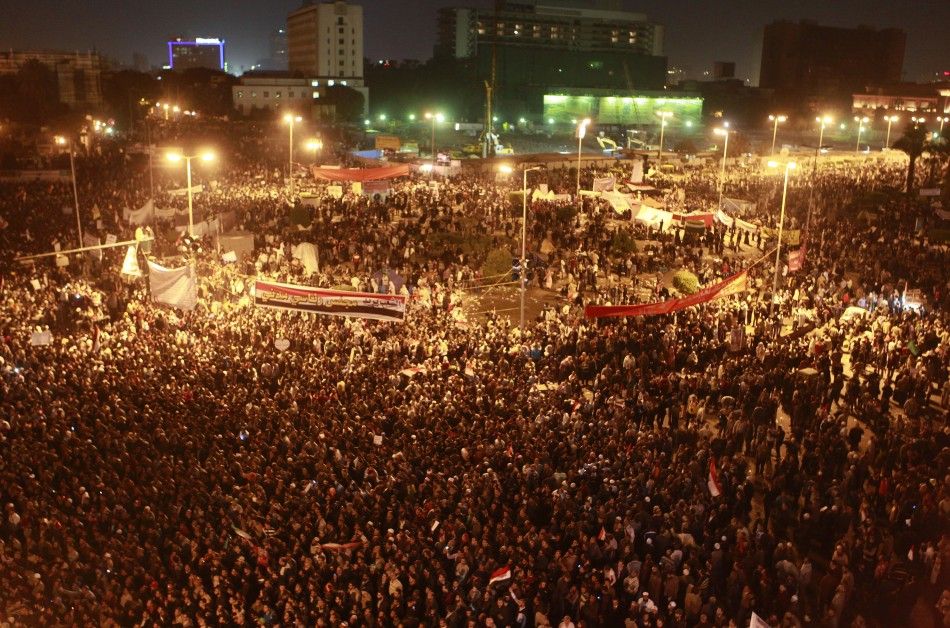
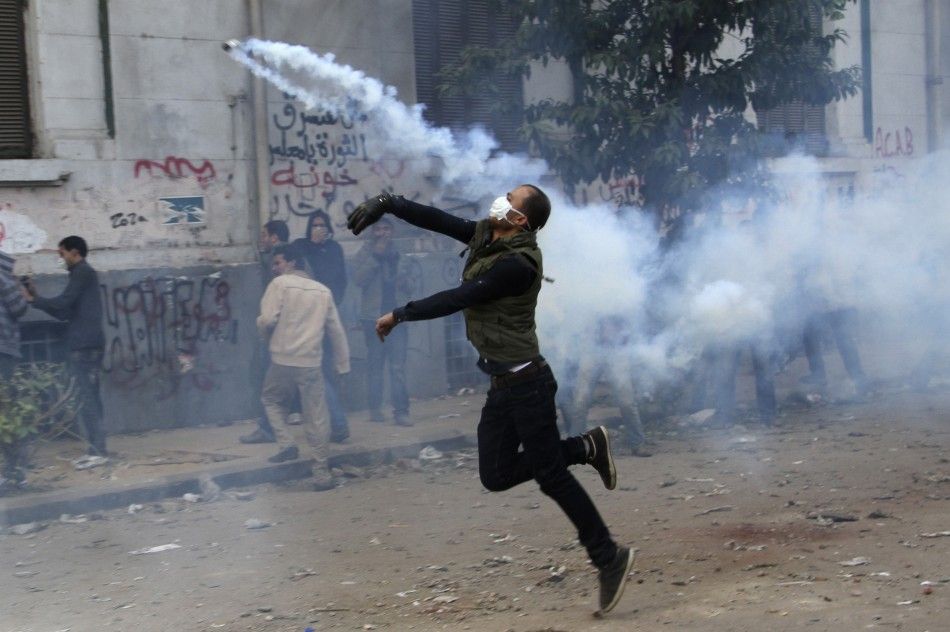
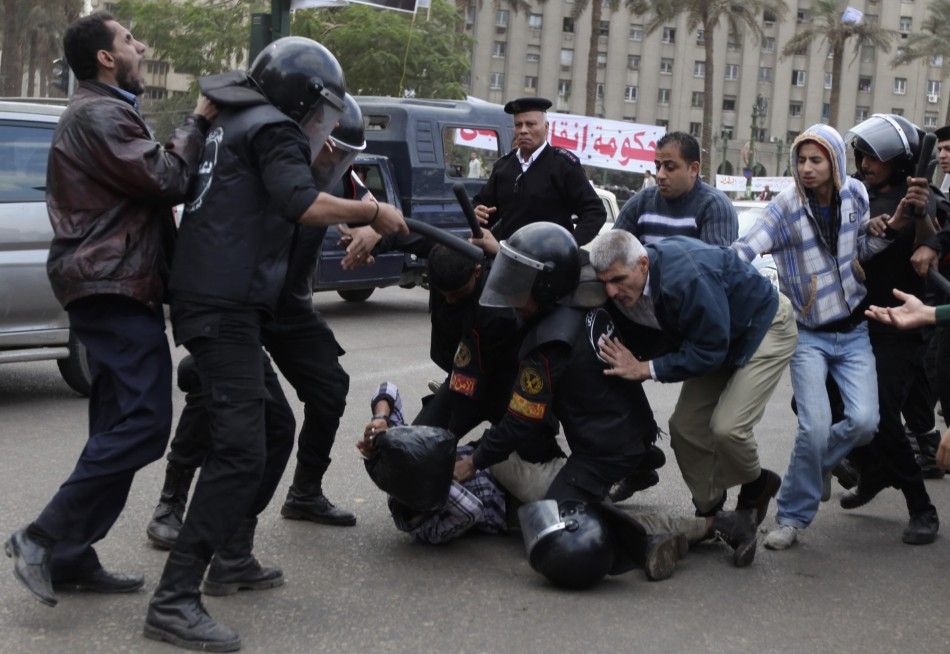
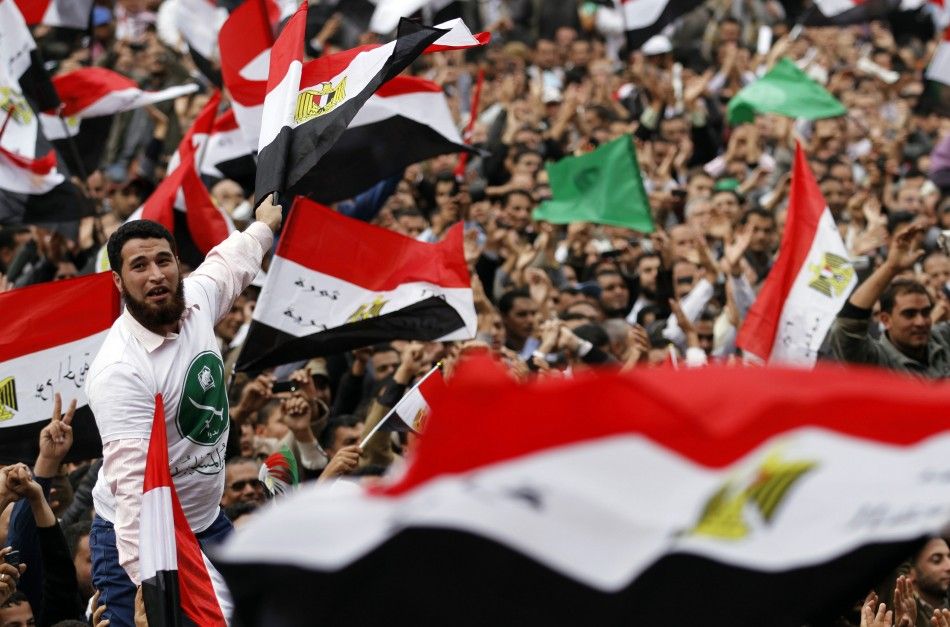

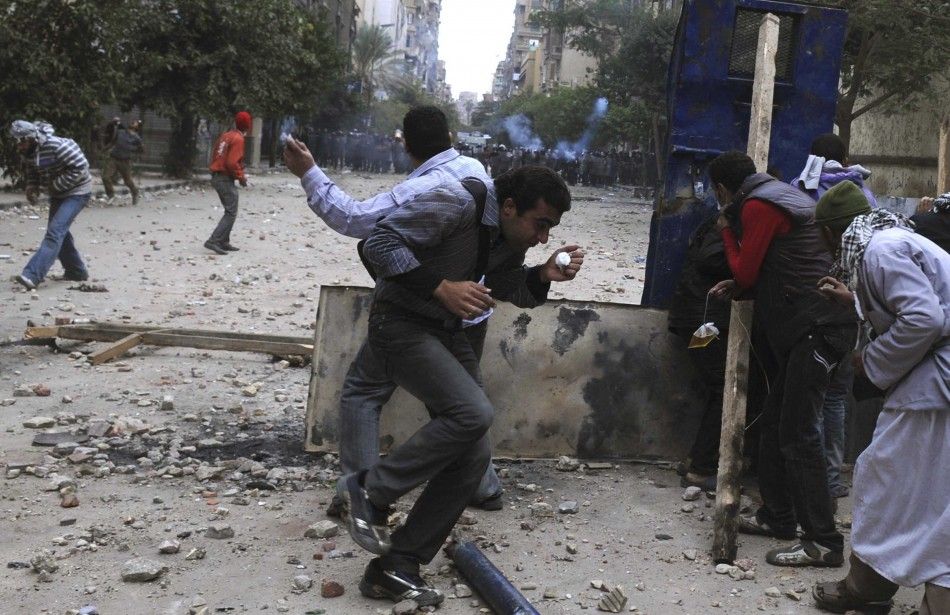
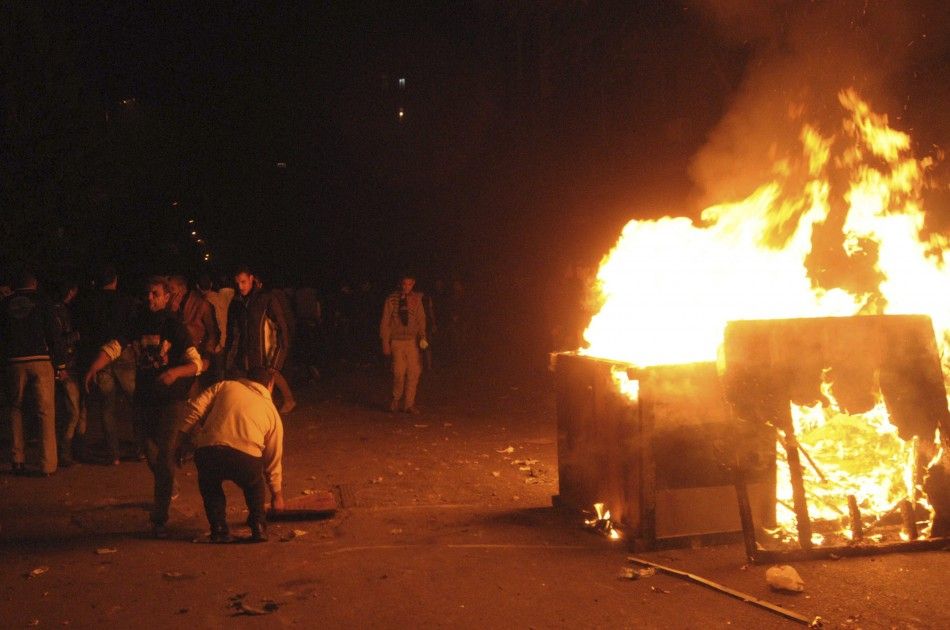
© Copyright IBTimes 2024. All rights reserved.











